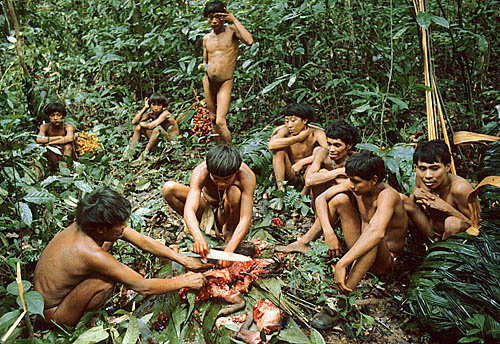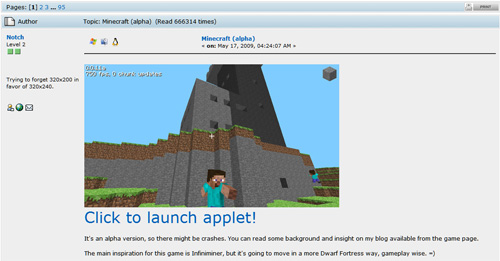Who exactly are you gamers anyway?
That you’re a significant bunch seems indisputable. Everyone certainly seems obsessed with you these days. It’s been gamers this and gamers that for months now. And it hasn’t been complimentary for the most part.
For all the discussion about you, though, determining who you gamers are precisely continues to be difficult. Game developers have a vested interest in knowing who is and who isn’t part of their target audience and even they have trouble agreeing on a definition. According to professional game makers, a gamer is either a games enthusiast, anyone who plays games, anyone who considers themselves a gamer or any human being.
Still, it would probably be uncontroversial to state it’s generally understood the word “gamer” refers to an enthusiast of games and by games, it’s widely accepted these days that it refers mainly to videogames rather than older forms of gaming.
(Uncontroversial though that may be, it may still annoy people who hopscotch and play Pétanque to no end.)
It would also be uncontroversial to state that when it comes to games, the world’s population can be divided into three groups: people who do not play games, people who play games and finally, you gamers.
The largest group may still be people who do not play games at all. A half-century after Spacewar, four decades after Pong, 19 years after the NES, there are still billions of people who’ve never played a single game. That might never change because games, contrary to what the hucksters would have you believe, aren’t for everyone. The latest Oculus Rift dev kit just isn’t a pressing concern for people who are far too busy trying to survive reality to enjoy virtual escapades. The Yanomami people of the Amazonian rainforest, for example, are a little too preoccupied with clash of clans with the permadeath setting enabled.

(Source.)
That brings us to people who play games and gamers. No one would dispute that people who play games are the larger group with gamers being a subset. However, trying to define the boundaries between the two groups is an impossible task. Does the difference come down to the number of games played? People who play games might play numerous free-to-play games over the course of a year whereas gamers might devote themselves to a single game. Clearly, that’s a poor way of looking at it. Does the difference come down to the amount of money spent? People who play Candy Crush Saga are generating millions of dollars a day for King whereas there are gamers who do not spend a single cent playing Dota 2. So, money is not necessarily a critical differentiator. Is it the amount of time spent playing? If so, how many hours do people who play games need under their belt before they turn into a gamer? 100? 1,000? 10,000? These are questions with no convincing answers.
If it’s difficult to nail down the difference between the two groups, is it even necessary to draw a distinction between people who play games and gamers?
Of course it is.
Publishers, developers and game journalists do this implicitly. Publishers and developers design different games for those two different demographics (see Civilization and Civilization World). Game journalists do not write for people who play games because people who play games do not bother with games journalism. People who play games probably think Rockpapershotgun is affiliated with the National Rifle Association and Gamasutra is an ethnic porn site.
Make no mistake, you gamers are a special breed. Your standout trait is your deep abiding love of games. You don’t just spend hours playing games, you watch gaming videos and livestreams, you want to know everything about your favourite games, you F5 gaming forums, you spend hours discussing your favourite games, you read interviews with your favourite game developers, you follow the development of upcoming games closely. In short, you gamers are constantly engaged.
People who play games may outnumber you and may spend a lot on games but they’re a very fickle bunch. People who play games tend to favour fads. When gaming fads attract people who play games, these games hit big and when they fade, that audience is nigh impossible to recapture.
You gamers, on the other hand, are a very reliable market because of your deep abiding love for games. The downside is everyone — publishers, developers, game journalists — everyone in gaming takes you gamers for granted. The worst among them openly mock and smear and slander you. They’ve declared you’re worse than terrorists, accused you of being misogynists and pedophiles, compared you to the Tea Party, equated you to climate deniers and claimed you’re ultra right scum. They use the actions of a few miscreants to justify their bigotry towards millions and millions of gamers in the same way Michele Bachmann uses the actions of ISIS to justify her hatemongering towards 1.6 billion Muslims. Their bigotry runs so deep they can’t even bring themselves to say the word gamer.
Some of you younger gamers are deeply hurt by this. Don’t let it get you down. You gamers love games so remember what games have taught you. You don’t Quit Game when you get bruised, battered and knocked down; you pick yourself up, dust yourself off and try again.
Remember what you’ve accomplished because of your passion for games. Remember the immense impact you continue to have on gaming.
You gamers created and maintained FAQs, guides and wikis to help your fellow gamers. Everyone simply assumes some dedicated gamer will put in hour after hour, day after day, week and week, month after month, year after year updating these guides to reflect changes in games. You’ve done this with no compensation other than the satisfaction of enabling others to get the most out of the games you love.
You gamers created mods and total conversions to improve and dramatically transform games and some of these mods and total conversions have gone on to change the face of gaming. Dota 2, the most popular game by far on a digital distribution service with 100 million active accounts, is a sequel to a complex user-mod, marketed by gamers to each other, taught by gamers to other gamers.
You gamers created a rich, vibrant digital economy consisting of in-game items (frequently comically absurd) made by gamers and sold to other gamers. Valve, a billion-dollar gaming powerhouse, cannot compete with you when it comes to creating content for its games.
You gamers have put up record prize money for e-sports to enable your competitive fellow gamers, who’ve had their career choice second-guessed by friends and family for so long, to earn a decent living professionally.
You gamers championed small games by unknown developers and marketed them to your fellow gamers as well as to people who play games — games like a quirky Java game by an unknown Swedish developer with a marketing budget of precisely zero. You encouraged your fellow gamers on gaming forums to try it out, you made video after video to highlight its appeal and in doing so, not only turned Let’s Play videos into a cottage industry, but you turned that quirky Java game into a mainstream sensation worth billions.

(Source.)
You gamers have turned to your fellow gamers for games coverage, promoted their work on gaming forums and social media, and made them highly influential critics and pundits.
You gamers have provided funding for games that would otherwise never see the light of day. You showed great loyalty and broke crowdfunding records to enable a game developer who hadn’t released a game for almost a decade to make his dream game.
(You’ve also been badly burnt by irresponsible game developers who’ve taken advantage of your largesse but you know that a few bad hats do not represent the game developer community as a whole so you’ve kept on investing in game developers — even those with little professional experience.)
Not content with impacting gaming’s present and future, you gamers have returned to the past as well. You’ve led the way when it comes to game preservation. You’ve created software emulators for long-forgotten and long-neglected games — games the developers and publishers no longer support or even think about. You’ve done this simply because you want others to play the games you love so much.
You gamers have spent hours scanning and archiving long-defunct gaming magazines because you, more so than magazine publishers or game writers themselves, appreciate the fact these are a part of gaming history and contain lessons worth heeding today. The late Dani Bunten wrote the following almost three decades ago:
Play, therefore, is not a silly non-functional activity but rather the way evolution has produced an organism adapted for change. Humans are by far the most flexible and neophilic (new loving) animals on earth and thereby require the most play. We derive pleasure from novel and complex interactions with our environment throughout our lifetimes. So when you play you are not wasting time on a useless activity. You are repeating the history of evolution and training yourself to maintain a flexible response to your environment! I hope this reassures you as much as it did me!
You gamers responded to repeated accusations of misanthropy by demonstrating just how bighearted you are year after year. You’ve donated millions to charities dedicated to children, female game developers and anti-bullying efforts much to the stupefaction of your detractors who have had little to offer but scorn, bile and venom.
You gamers have been inclusive and welcoming. No matter colour, no matter creed, no matter class, no matter gender, no matter sexuality, no matter what.

(Source.)
Accused of being exclusionary and xenophobic, you gamers responded with the Not Your Shield project and exposed your detractors as the racist sexist bigots they are when they persisted in stereotyping you as white cis males.
Not content with changing the gaming industry, you gamers have begun changing other industries as well. Amazon bought Twitch for almost a billion dollars just to reach you. Google will soon support 60FPS videos on YouTube just to cater to you.
Gamers, the future is yours.
According to the Chinese Zodiac, 2015 is the Year of the Sheep — docile creatures which are easily shepherded and fleeced by those who would exploit them.
You gamers can change that. You’ve got all the tools and all the experience.
You gamers are not just game-literate; you’re smart, tech-savvy autodidacts. You’ve trained by learning new mechanics and mastering systems in game after game, year after year. Acquiring new skills comes easily to you. (Remember how you learnt recording, editing and transcoding to create gaming videos and ended up accidentally dominating YouTube?)
You’re capable of collecting, collating, clearly presenting and sharing vast amounts of information. (Remember those FAQs, guides and wikis?)
You’re capable of analysing, fixing, improving and even completely changing complex systems. (Remember those mods and total conversions?)
You have at your disposal the most OP weapon in all of gaming: the Gamer Dollar. It makes the BFG look like a peashooter; it makes Load Game, that powerful spell of renewal, seem inconsequential. Everyone in gaming is chasing that almighty Gamer Dollar. Publishers will invest hundreds of millions of dollars in marketing next year to get a small slice of that Gamer Dollar. Developers who’ve eschewed publishers will stay in business because you gamers have generously advanced them some of that Gamer Dollar. Those publishers and developers will go wherever you gamers lead them.
You gamers can raise standards in gaming. You can effect widespread change.
You take your play seriously so get to work, gamers.
Make 2015 the Year of the Gamer.
